Close UP
Incorporated Nonprofit Organization Soteria Tokyo ~Aiming for a Society Where People from Diverse Cultures and Backgrounds Can Thrive~
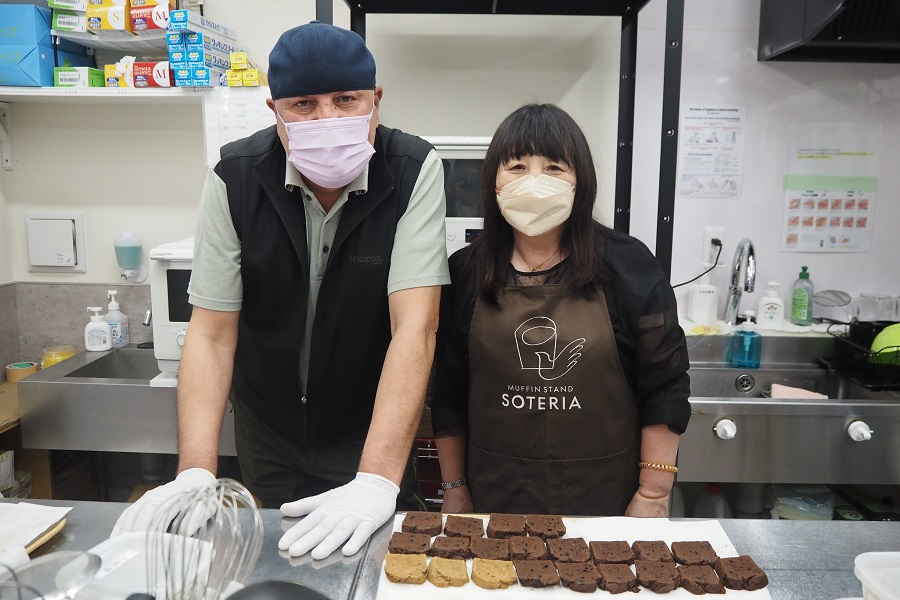
Soteria Firm, which sells handmade muffins and rusks with a gentle taste, under the theme of "mental and physical health," is a social firm where people from diverse cultures and backgrounds come together to work. This is also a place where many staff members with foreign roots are actively working. We interviewed Ms. Sayaka Tsukamoto, a member of the incorporated NPO Soteria Tokyo office, who supports the store as management, about her thoughts on the activities of Soteria Firm.
Japan with the highest number of psychiatric beds per capita in the world.
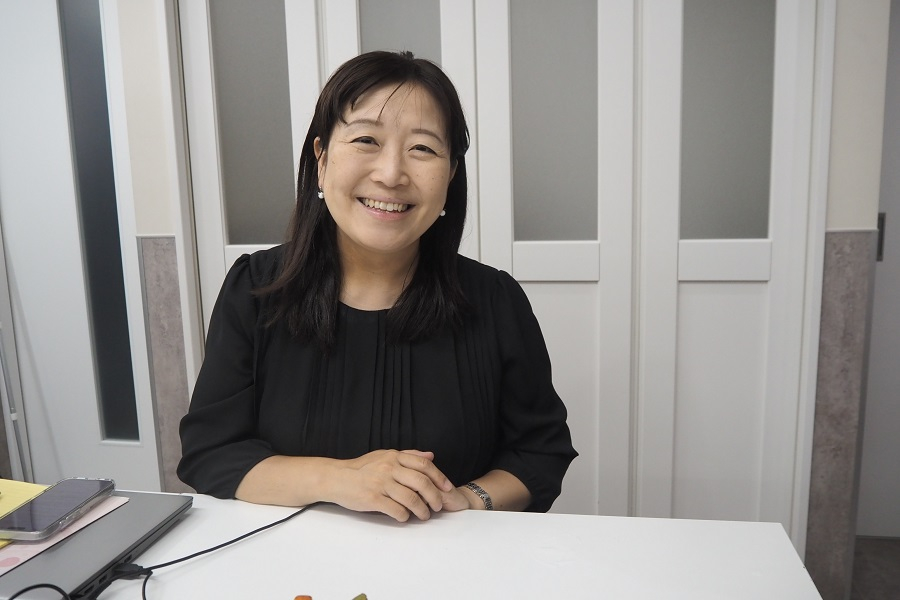
Soteria Tokyo, the incorporated nonprofit organization that operates Soteria Firm, was established in 2009 as an incorporated organization that aims to create a society where people can live in their communities even if they have mental disabilities.
Japan has the highest number of psychiatric beds per capita in the world, and long-term hospitalization as well as polypharmacy of medications have been considered a challenge.
"The situation in Japan is quite disconcerting when international comparisons are made. Soteria Tokyo is a project that was started to properly inform the public about this situation, and raise awareness of the issues in Japan; and to seek a better way of community mental health care," says Ms. Tsukamoto.
The organization's name, "Soteria," means "gifting recovery" in Greek, and was the name given to a project (1969-1983) in the U.S. that assisted people with disabilities to recover from illness and disability without depending solely on antipsychotic drugs. Even though the project ended, the method of support is still carried on throughout the world, and Soteria Tokyo continues the spirit of that project.
Soteria Tokyo has been developing businesses needed by people with disabilities to live in the community, starting with the establishment of Soteria Tokyo House, a group home for people with mental disabilities, and including continuous employment support, short-stay and respite care services, as well as a social firm business (Soteria Firm).
Learning from Italy, a Society Where People With Disabilities Can Work and Live in the Community
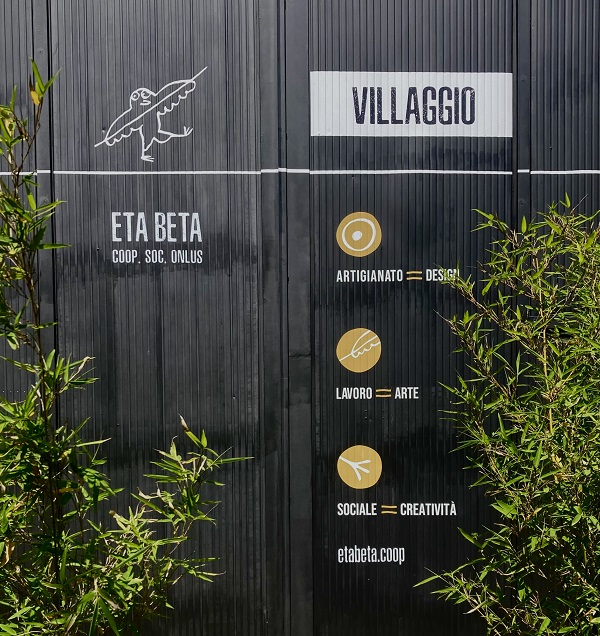
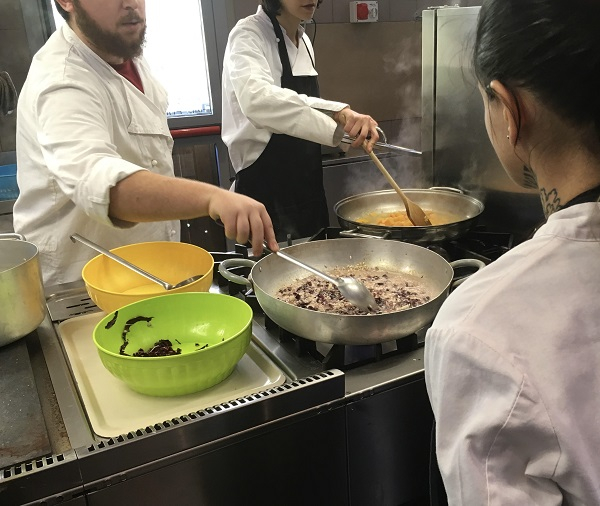
Soteria Firm is certified as a "Social Firm" by the Tokyo Metropolitan Government. The term "social firm" refers to a social enterprise that actively employs people who are disadvantaged in the labor market, or socially vulnerable - such as people with disabilities, the long-term unemployed, and drug and alcohol addicts - and creates a place where they can work together with other employees on an equal footing. When Soteria Tokyo started the Soteria Firm business, they referred to efforts in Italy: the birthplace of social firms, and considered a leader in the reform of psychiatric care.
In 1978, Italy's parliament decided to discontinue all psychiatric hospitals. And with the support of community services and social cooperatives, the country has established a system for the disabled and other vulnerable members of society to work and live in the community. Soteria Tokyo implemented a joint project with a social cooperative in Italy. And from FY2017 to FY2018, they sent staff to Italy.
"Ten mentally handicapped (Japanese) persons and their supporters (dispatched from Soteria Tokyo to Italy worked with Italian staff, including handicapped persons, at Eta Beta, a social cooperative in Bologna, Italy, and learned about its (social cooperative's) structure and ways of being from various perspectives. By having many places like social cooperatives, people with difficulties can (realize) diverse ways of working, and people with disabilities can also live in their communities. Based on this experience, we opened Soteria Firm in 2021 to create a workplace where diverse people work as equals," says Ms. Tsukamoto.
Seeking What it Means to "Work as 'Equals'" in the True Meaning
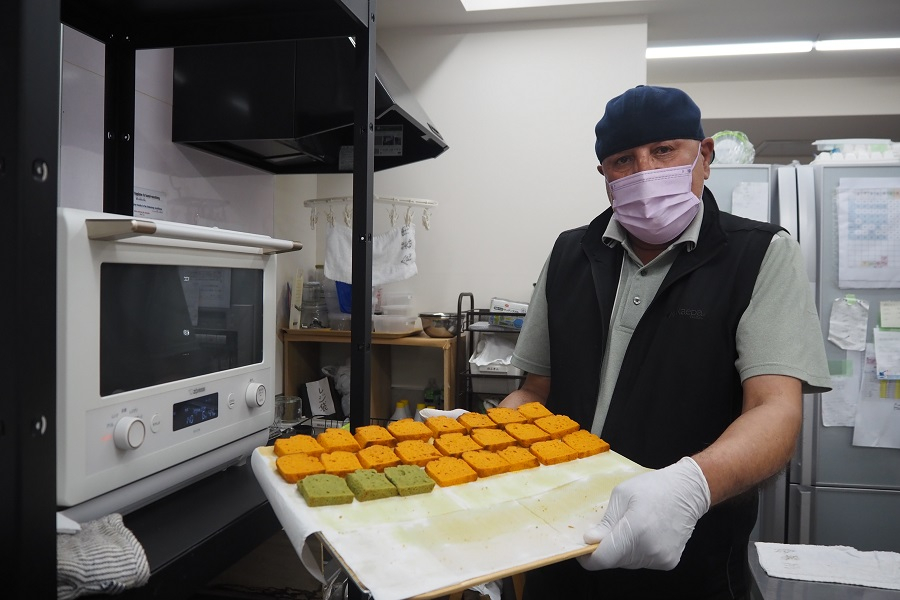
At Soteria Firm, employees aim to work as equals, without hierarchy, and they value the importance of managing the operation based on shared responsibility through discussion among all employees. "In employment support for people with disabilities, there is often a hierarchical structure of the supporter and the supported. If we "lead" them simply because they have a disability, we undermine their ability and potential. We went all the way to Italy to learn what it means to work as equals in the true meaning. The essence of Soteria Firm is that everyone discusses the project together, even if it takes a detour," says Ms. Tsukamoto.
Soteria Firm employs people from diverse backgrounds, regardless of their disability or nationality. They say that synergy is created by diverse people working together. "One Japanese employee with a mental disability had difficulty working at other welfare service centers because they felt like they were out of place due to their blond hair and eccentric attire. But blonde hair is not uncommon here (in Soteria Firm), so they fit in. In other cases, for example, the hearing-impaired are not bothered if someone with a tendency toward soliloquy works next to them. We have found that when diverse people work in this way, things can work out better, and new possibilities can arise," says Ms. Tsukamoto.
Reaching Those Who Have Fallen Out of the Welfare System
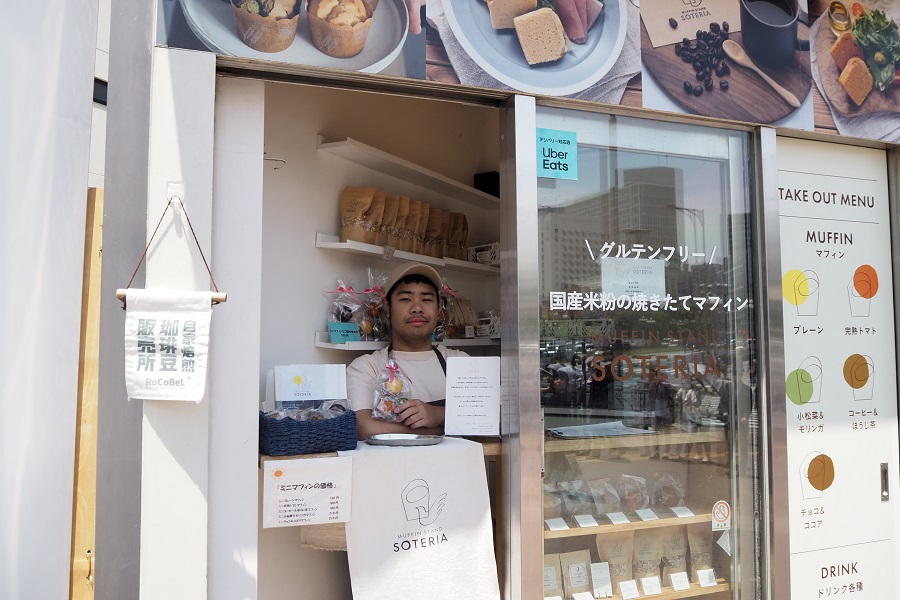
"Our main target group, when we offered jobs at Soteria Firm, was people who had fallen out of the welfare service," says Ms. Tsukamoto.
"Mental illness is said to occur at somewhat similar rates in any country. People who move across countries and cultures are also said to be more likely to face mental health issues. However, the procedures for using Japan’s welfare system are complicated, and it is difficult to apply if you cannot understand Japanese. We thought that, among foreigners with mental disabilities living in Japan, there are potentially people who have not been able to reach welfare services or medical care, or who are unable to work due to their disabilities."
Soteria Tokyo started recruiting to reach those who were not connected to the welfare system: by providing them with opportunities to work. At first, things did not go well. However, as they distributed flyers at support groups for foreigners and churches as well as mosques, they gradually began to connect with people who needed such information.
Four years after Soteria Farm was established, changes have begun to take place in the people who work there.
"Each individual has their changes, like the person who changes his or her position in a family. If they are men with families, they have regained their role as "working fathers," and their relationships with their families seem to be getting better. Some people gain confidence by working here (Soteria Farm) and are beginning to move from (welfare employment) to regular employment. We would be happy if they use their experience here as an opportunity to move on to the next step," says Ms. Tsukamoto.
An Inclusive Society Spreading from Social Firms Where Diverse People Play Active Roles

Photo Courtesy: Soteria Tokyo
Soteria Firm makes and sells muffins that are free of preservatives and colorants, which are made from rice flour and are gluten-free. They started out making and selling salads and bento boxes. Currently, they mainly sell muffins, rusks made from muffins, granola made at another Soteria Tokyo facility, and coffee imported from Myanmar.
"We value the slow food we learned in Italy, and we discuss and decide on the products we sell, among our members. In addition to our store in front of Yotsuya Station, we also sell wholesale to companies and other businesses," says Ms. Tsukamoto.
The Tokyo Metropolitan Government promotes the establishment and activities of social firms. And once certified, they receive subsidies for five years. Soteria Firm has also been certified and is operating with the help of subsidies. However, as the subsidy period is about to end, they will have to increase sales just like other commercial enterprises, to continue their business.
"Those involved in welfare work aspire to (run) social firms. Even though many people want to create a society where they can work on equal terms with people with disabilities, the reality is that it’s pretty tough to manage. In Italy, in addition to ongoing public subsidies, there is a deeply rooted culture of professionals and various other people providing free cooperation and collaboration as a form of social contribution to support social firms. I hope that more people will come to agree with our vision, and that places like social firms will spread throughout Japan, leading to a more inclusive society," says Ms. Tsukamoto.
Aiming for an inclusive society where diverse people can work on equal footing, Soteria Firm faces various challenges, and the delicious smell of muffins gently envelops passersby.
*This article is based on information available at the time of the interview. For the latest information, please contact the organization directly.
